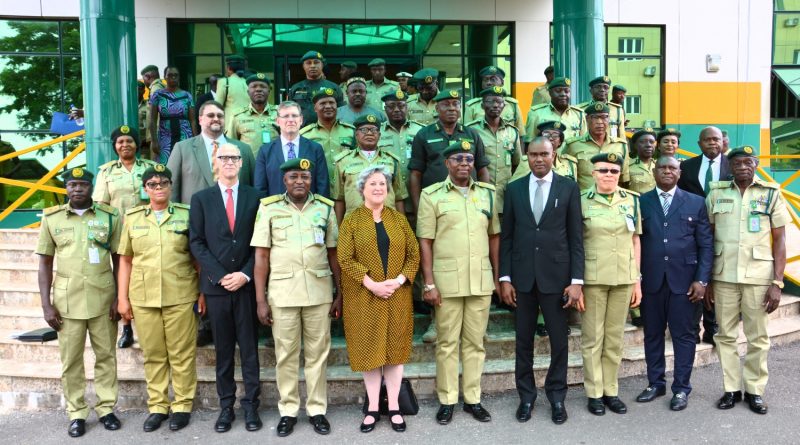INL Funded Project: Strengthening the Capacity of the Nigerian Correctional Service in the North-Eastern States
Located under the Ministry of Interior, the NCoS is in charge of the custody of a total of 74191 inmates. Dispute, genuine efforts by the Nigerian Government and the NCoS to meet international standards and norms for the treatment of prisoners and prison management, such as the Nelson Mandela Rules, multiple challenges still exist. Current challenges include overcrowding due to the excessive duration of pre-trial detention, poor prison conditions and limited educational and vocational training programmes as a result of inadequate financial, infrastructural, and logistical resources. Additionally, former prisoners, even those released without charge, face major challenges reintegrating back into their communities upon release.
Our work
UNODC has been active in Nigeria for three decades, including several projects with the Nigerian Correctional Service (NCoS). Engagement with the NCoS included technical support to address contagious diseases, drug use and health services in Nigerian prisons as well as more specific assistance to enhance the COVID-19 preparedness and response capacity of the NCoS. More recently, UNDOC has expanded its partnership with the NCoS to address other challenges affecting the Correctional Service such as overcrowding and limited infrastructure to support the rehabilitation of inmates.
Our work on addressing prison challenges aligns with the UN system-wide common position on incarceration which aims at;
Shifting policies towards prevention and alternatives;
Strengthening prison management and improving prison conditions, and
Advancing the rehabilitation and social reintegration of offenders.
Addressing prison challenges in Nigeria is a key focus area included in our Strategic Vision for Nigeria 2030.
Our partners
Key counterparts for UNODC in this area include the Nigerian Correctional Service (NCoS); public oversight bodies with a mandate to conduct external inspections of NCoS facilities; the courts, prosecution service and legal aid providers; the communities and families to which detainees and prisoners are destined to return after release and civil society organisations actively engaged in prison reform and access to justice.
Our projects
The “Strengthening the Capacity Of The Nigerian Correctional Service To Ensure The Safe, Secure And Humane Custody Of Pre-Trial Detainees And Sentenced Prisoners In Selected Facilities In The North-Eastern States” project funded by the Government of the United States of America, through the U.S. Department of State’s Bureau of International Narcotics and Law Enforcement Affairs (INL) seeks to ensure that detainees and prisoners have effective access to justice, are treated in line with their human dignity, and are able to support themselves self-sufficiently upon release, thereby reducing recidivism. The project also seeks to ensure Boko Haram is unable to effectively recruit new followers from amongst the (former) prison population.
The “Strengthening the capacity of the Nigerian Correctional Service to effectively rehabilitate and reintegrate prisoners held for an (alleged) association with Boko Haram (Phase II)” project funded by the Government of Germany aims to
support the effective management, rehabilitation and social reintegration of prisoners held for an (alleged) association with Boko Haram.




